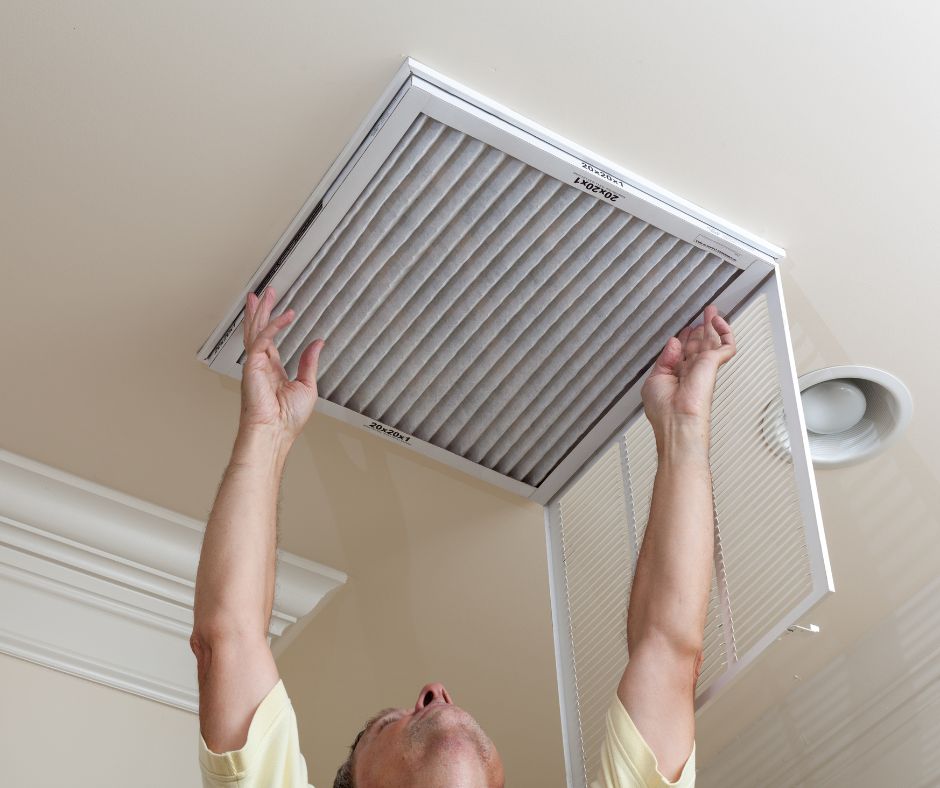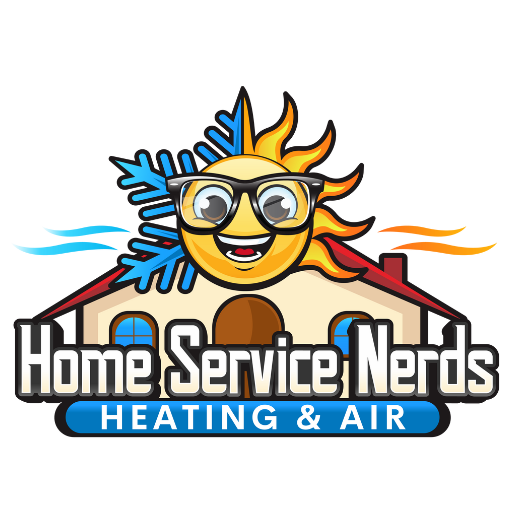4 Myths
about HVAC
Maintenance
We hear lots of things about HVAC maintenance: good, bad, wild, true, and untrue. With all that, we figure it’s time to set the record straight. Here are 4 Myths about HVAC Maintenance we’ll be discussing in this article:
Did you Know?
Your HVAC system is the most expensive appliance in your home, costing an average of $8,500 – $11,100 (National Average) to replace and $150 – $350+ to repair.

Myth 1: Maintenance isn’t necessary
HVAC maintenance is essential for several reasons. Aside from just staying cool and comfortable in your home, regular HVAC maintenance can
- help you get the best performance out of your system consistently (Efficiency),
- prevent safety issues that could impact your family (Safety),
- increase the years you get out of the unit before needing a major repair/replacement (Longevity)
- and help to keep your manufacturer’s warranty valid (Warranty Compliance).
Keep reading to learn a little more about how each is affected by regular HVAC maintenance.
Efficiency:
Ensuring that your HVAC system is operating at its peak efficiency by maintaining its components. This efficiency translates into lower energy consumption and reduced utility bills. Dirty filters, clogged ducts, or malfunctioning components can significantly decrease efficiency.
Longevity:
By identifying and addressing issues early on, you can prevent unecessary wear and tear on the components of your HVAC system. Keeping all the components in good working order helps to increase the length of time over which you get the best performance from your system. IE: a longer time before you’ll need to make repairs or replacements. Regular maintenance helps us to catch those issues and resolve them quickly, thus protecting your investment, your home, and your wallet.
Comfort:
A well-maintained HVAC system provides consistent and comfortable temperatures throughout your home. Regular maintenance ensures that all components are functioning correctly, preventing unexpected breakdowns that could leave you without heating or cooling when you need it most.
Safety:
Faulty HVAC systems can pose safety hazards, such as carbon monoxide, gas leaks, water damage, or electrical fires. Routine maintenance includes checking for potential safety risks and ensuring that all components are operating safely.
Warranty Compliance:
Most HVAC manufacturers require regular maintenance as a condition of their warranty coverage. Neglecting maintenance could void your warranty, leaving you responsible for the full cost of any repairs or replacements. Regular maintenance, whether completed by you or an HVAC company, should be documented just in case you need to submit a warranty claim.
While maintenance may seem like it’s not worth the money when nothing is wrong, having regular maintenance done can help you take care of the smaller issues before they become bigger ones so you aren’t left without cool air when it’s 100°. Our goal is to ensure you can have comfort and peace in your home without having the stress of an HVAC breakdown when you need it most!
Myth 2: My system just needs “gas” or “freon”.
Whether or not your HVAC system needs to have Freon (or refrigerant) added depends on various factors, including the type of system you have, its age, and whether there are any leaks present. Freon is a brand name for a type of refrigerant commonly used in air conditioning and refrigeration systems.
If your HVAC system is not cooling or heating properly, it could be due to low refrigerant levels but that’s definitely a reason to have a licensed HVAC technician would need to inspect the system to determine the cause. Sometimes there is a simpler, less expensive issue than a refrigerant leak.
Did you Know?
HVAC systems do NOT consume refrigerant like a car does gasoline. Your HVAC system is closed and sealed to prevent leaks and 95%+ of the time should not need refrigerant added.
And 95+% of the time the “Just top me off” approach will be a waste of your money. Think about it. If it’s not supposed to need a refill, why does it?
Certain refrigerants are no longer made and can be very expensive. If there is a leak, simply adding more refrigerant without fixing the leak would only provide a temporary solution. There is no guarantee that the refrigerant will not leak out of the system, sometimes in just hours.
Regular maintenance of your HVAC system, including checking refrigerant levels and addressing any leaks, can help ensure its efficient operation and prevent the need for refrigerant addition.

Myth 3: All I have to do is change my filters
While making sure to change your air filters regularly (every 1-3 months) can help, most store-bought air filters are meant to protect your system and not help with your indoor air quality. They keep large particles from getting into and clogging your system.
The particles that are causing YOU issues, like allergies, are not solved with a standard air filter. And while some store-bought filters do help some, regular maintenance of your media air filter is what will make a much larger impact.
Your HVAC’s media air filtergets changed once a year during your maintenance and will help with the much smaller particles to improve not just your system’s performance but the air you breathe too! Other indoor air quality products are also available such as Air Scrubbers and UV Lights to help eliminate biological growth, VOC’s, viruses, bacteria, just to name some of the contaminants found in most indoor air.
And while changing the air filters is an important aspect of HVAC maintenance, but it’s not the only task involved. Here are some other essential maintenance tasks for HVAC systems that should be performed by a licensed HVAC technician:
- Inspecting and cleaning the evaporator and condenser coils
- Checking and lubricating moving parts
- Checking refrigerant levels
- Inspecting and cleaning the drainage system
- Testing controls and thermostat
- Inspecting electrical connections
Performing these maintenance tasks regularly helps extend the life of your HVAC system, improves energy efficiency, and ensures optimal comfort in your home.
Myth 4: If I turn my thermostat down lower, it will cool faster.
Turning down your thermostat will not make your space colder faster. The thermostat controls the temperature setpoint at which your HVAC system operates, but it doesn’t affect the speed at which your system cools or heats your space.
When you lower the thermostat setting, it simply tells your HVAC system to continue running until it reaches the new, lower temperature setpoint. The rate at which your space cools or heats depends on factors such as:
- The capacity of your HVAC system
- The temperature difference between the new temperature and the current temperature
- The condition of your ductwork
- The insulation levels of the home
- The size of your space.

Your HVAC system’s cooling or heating capacity remains consistent regardless of the thermostat setting.
Setting the thermostat to your desired temperature and leaving it there is the most efficient way to maintain comfort in your space without wasting energy. Rapidly changing the thermostat setting frequently can result in unnecessary energy consumption and may not achieve the desired temperature any faster.
Energy-Saving Fun fact: Fans are meant to cool YOU not the room.
The way that fans work is by moving more air across your body to aid in evaporation and make you feel cooler. So you can turn the fans off when you leave the room to save on electricity.
Make sure your fans are spinning clockwise in the summertime to push the air down on you. On ceiling fans, there is typically a little switch on the fan itself and on some remote controls.
From Unecessary to Essential
When your HVAC system is running just fine, that’s no time to skip out on regular maintenance. Maintenance of your HVAC system is similar to maintaining your car with regular oil changes. When you take good care of it, it lasts longer, works better, is safer, and even saves you money in the long run. It’s worth every penny.
Thinking about HVAC Maintenance?
Take a look at how it works with Home Service Nerds Heating & Air.






